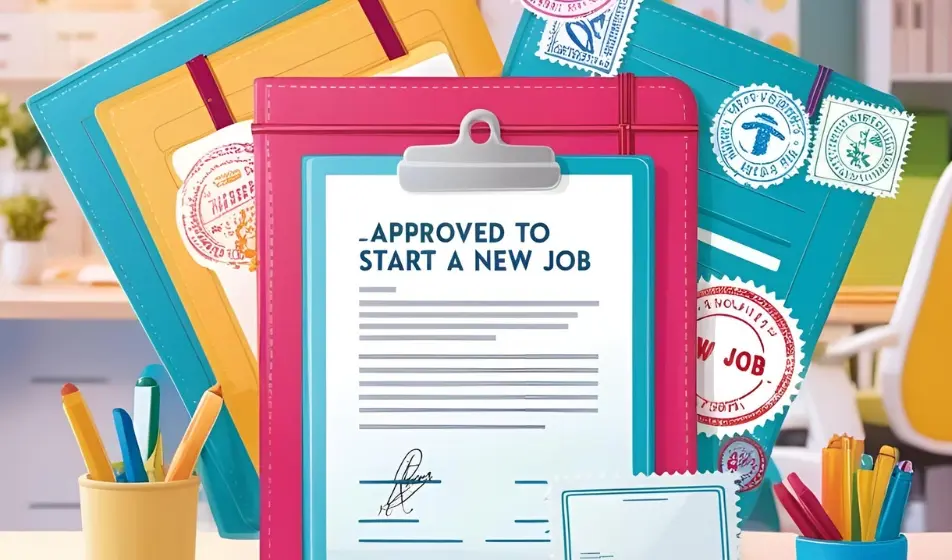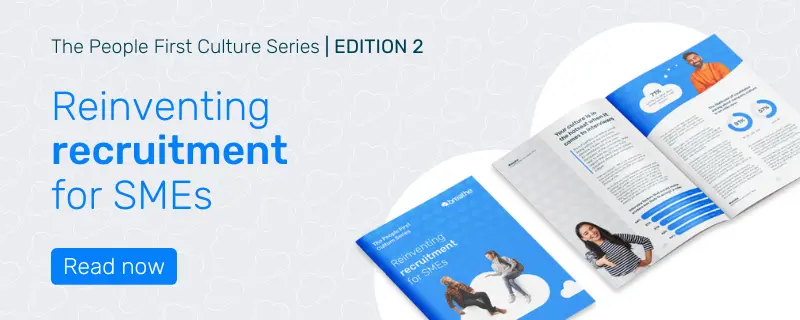All SMEs want to make sure they get the right people on board. After all, especially in a small business, culture is everything.
A big part of ensuring new team members can perform their duties well (and legally) are pre-employment checks.
As an employer, choosing who to employ is one of the most important decisions you'll make - particularly for SMEs.
The wrong employee can significantly impact the culture, productivity and profitability of the business. For that reason, it's important to make sure you make the right choice before signing the contract.
The last thing you want is to feel great about a new employee after the interview, only to have second thoughts when they join. Of course, there's no 100% effective way of preventing this.
But one of the best methods available is to use pre-employment checks. These offer employers a way to confirm that the employee has the skills and experience they say they do.
In this blog, we discuss pre-employment checks in more detail and explain how to get them right.
What are pre-employment checks?
Pre-employment checks are a series of verifications you perform on someone's employment history, qualifications or sometimes in the form of a character reference. Different roles will require different levels of checks to suit the specific needs of the role.
Generally, it's advisable to make job offers conditional on the employee passing these checks. This gives you the opportunity to legally and fairly back out of the agreement if the job applicant hasn't been entirely honest.
Why are pre-employment checks important?
Pre-employment checks (also known as 'pre-employment screening checks') help you to determine whether a candidate is suitable for a particular role, and that they have the required qualifications and skills. They also help you confirm whether the person is able to carry out the duties of their new role.
Some roles may require certain pre-employment checks for legal reasons, such as confirming the person has the right to work in the UK. Or, if they're working with young or vulnerable people, criminal record checks might also apply. Certain roles may even require health checks, if the role is particularly physical or potentially hazardous.
What checks are necessary before hiring?
Pre-employment checks help you make informed hiring decisions. Some are legally required, while others are simply good practice.
The checks you choose will depend on the role, but they generally fall into two categories:
Legal must-haves
These are checks you're required to carry out in certain situations:
-
Right to work in the UK – A legal requirement for all roles. This must be checked and recorded before the person starts.
-
DBS checks – Needed for roles involving children or vulnerable adults.
-
Health assessments – Sometimes required for physically demanding or safety-critical jobs.
-
Qualification checks – Important for regulated professions like teaching or law.
-
Driving licence checks – If the role involves driving, this should be confirmed before the employee starts.
Good practice
These checks aren’t required by law, but they can help you confirm a candidate’s suitability and reduce hiring risks:
-
References – To check experience and cultural fit.
-
Employment and education history – To confirm qualifications or roles held.
By tailoring your checks to the needs of each role, you can make sure you’re covering the essentials without overcomplicating the process.
Right to work: The one check you can't skip
Pre-employment checks are a hugely important part of employing new staff. But the vast majority of checks aren't a legal requirement.
However, there is one check that all employers are legally required to complete, regardless of the sector they're in or the person they're employing. This involves checking that the employee has a legal right to work in the UK.
In practice, this simply involves asking the employee for some form of proof of identification. For British citizens, a passport should suffice. For international employees, other documents will be needed.
When should you conduct pre-employment checks?
These checks normally take place once you have interviewed candidates, but not always.
Before a job offer
Conducting pre-employment checks before a job offer can reduce the time between offering someone the job and their start date, as investigations will already have been done.
It also means that if they do bring up anything negative, you can simply move on to the next candidate. However, it can be expensive vetting several potentials in advance and you need to make sure you're legally allowed to do so.
It's also important to be aware that the candidate may not appreciate you doing these checks before the offer is confirmed.
That's because there's a good chance their current employer doesn't know they're looking for a new job. For that reason, most employers will conduct pre-employment checks (particularly references) after the offer has been extended.
After the job offer
This is the most common route and means you only have one candidate to vet. However, if it falls through, you may have to start the interview process from scratch, or go back to other candidates that you've already rejected.
Nonetheless, this remains by far the most common method of completing pre-employment checks. Most employers get around these challenges by waiting to reject other candidates until the selected employee has passed all checks and signed their contract.
Vetting social media presence
92% of companies now use social media in recruitment to hire & vet the best candidates. In particular, LinkedIn can be an effective way to vet a candidate's skills and experience, since it acts as a digital CV.
If an employee is dishonest on their CV, there's not much their current employer can do about it. But it's difficult for them to exaggerate job titles or experience on a public platform that their employer and colleagues can see. For that reason, comparing CVs with public information can be an effective way to spot any issues.
It can also be helpful to check employees' personal profiles to identify any potentially controversial or suspicious activity. This is particularly the case for any consumer-facing roles.
There's no need to be overly censorious here, but you need to be aware that any details you can see online can also be seen by potential customers and clients. It's important to be aware of any difficulties that might arise.
Read more: Fishing for talent? Cast your net wide with social media recruiting
References: How to collect them & what to ask for
References are a great way to find out whether someone is suitable for the role and will fit with your company culture – it’s hard to know how they will work on a day-to-day basis from just one interview.
They’re also important if there's anything you might want to check or verify on someone's CV.
You'd normally ask for references once you’ve given a conditional job offer and that offer is subject to references being satisfactory. You can do this either in writing or by phone.
If you'd like to request a detailed reference, according to ACAS, you can request the following:
- Employment dates and details
- Details around skills, ability & experience
- How often the employee was off work
- Any disciplinary actions against them
- Information about character, strengths & weaknesses (related to the new role)
- The reason the employee left their previous job
Some companies may only offer a basic reference, which is simply a short job summary, the employee's job title and their dates of employment.
Can I withdraw a job offer after pre-employment checks?
You can withdraw a job offer if your checks reveal something negative, but only if the offer is conditional. If you didn't mention the need for employment checks when making the offer, this technically constitutes a binding employment contract. In this situation, they would need to be dismissed as if they were an employee.
Therefore, it's important to make all job offers conditional on passing these checks.
How to find the right candidates quickly
If you're in a rush to fill a position, it's easy to think that pre-employment checks aren't necessary. In truth, skipping these is almost always a false economy. If the employee doesn't have the skills or experience they say they do, it's important you find out about this as soon as possible.
Once you've completed your checks and confirmed the contract, it's important to keep evidence of the employee's ID and previous work references. You'll also want to have a record of the contract, NDA and any other documents being signed.
The best way to do that is using a product like Breathe. This enables businesses to store all their important contracts and documents in a single centralised location, perfect for simple access and auditing.
If you want to find the right candidates as quickly as possible, this is a much more effective and sustainable approach than skipping pre-employment checks.
Frequently asked questions
How long do pre-employment checks take?
It really depends on the type of check. Some, like ID verification, can be done quickly. Others, like DBS checks, can take a few weeks. It’s worth factoring in some extra time, just in case.
What happens if a candidate fails a check?
If your offer was conditional, then you’re within your rights to withdraw it. That’s why it’s a good idea to clearly state in your offer letter that the role depends on passing these checks.
Can I carry out checks before offering a job?
You can, as long as the candidate agrees to it. But timing matters. Many employers choose to wait until after a conditional offer has been made, especially when it comes to references or anything that might alert a current employer.

Author: Aimée Brougham-Chandler
An IDM-certified Digital Copywriter (2023) & English Language & Literature graduate (BA Hons), Aimée is Breathe's Content Assistant. With 3 years' content marketing experience, Aimée has a passion for writing - and providing SME HR teams with solutions to their problems. She enjoys delving into & demystifying all things HR: from employee performance to health and wellbeing, leave to company culture & much more.





